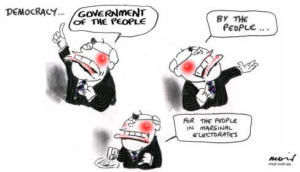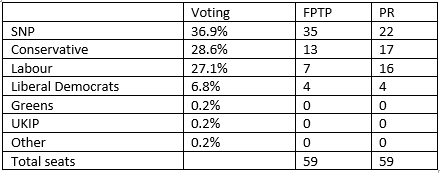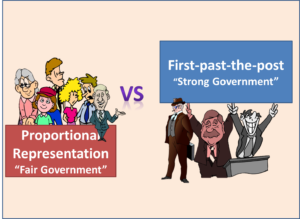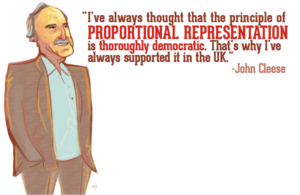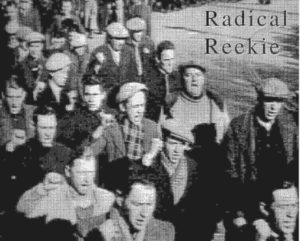The only chance we have of seeing electoral reform in the UK is if the Labour Party join with the LibDems and the Greens in calling for it.
If you are in the Labour Party, choose the NEC candidates that support PR. We need a better system to elect our UK Government. We already have PR for Scotland and Wales – why not Westminster too? It’s unlikely we’d have faced a hard Brexit if we had PR.
PR will truly allow Labour to back up its “for the many not the few” rhetoric. [36 CLPs had signed up to PR as at Aug 23rd, 2018 see Labour List article.]
If you’re not convinced why we need electoral reform, read on..
Why PR is the Medicine Our Society Needs
[Also published in Labour Hame]
If Labour commits to PR and gets into power, they will be able to change how this country is governed for ever. Many are sick of seeing our nation being conned on Brexit by Tory extremists and I believe they would never have gained the power they presently hold if we had PR. Labourists worry that a fairer voting system will deny radical proposals being implemented once in office, but in the UK that means extreme right-wing ideas can get through as well. Look at hard Brexit, austerity, the poll tax, Council house sales, privatisation of public services, etc. Labour has spent two-thirds of the past 100 years in opposition – electoral reform will remedy that. And we needn’t worry about coalitions – the Lib Dems didn’t influence Tory policy in the last Government one jot, as far as I can see.
One argument against PR for Labourists is that it would preclude forming a majority Labour government pretty much forever. But under PR the Tories would also struggle to form a Government, and certainly seldom a majority one. Do we really need the likes of Rees-Mogg getting away with ruining the country? What’s clear is that under the present system, Labour will spend far more time in opposition. Wouldn’t it be better for them to have a chance to rule, albeit though that might mean co-operating with the likes of the Greens to do so? Indeed, in 2017, under STV, Scotland would have been better represented at Westminster, with 16 Labour MPs, not 7. Of course, under PR, voting patterns change. More people come out to vote as well; up to 10% more. But we end up with a more representative democracy.
Of course, the AV referendum was lost in 2011- because nobody loved it. And it was badly explained by the Electoral Commission. The No campaign was dirty and deceitful, the Yes campaign weak. There was a belief that PR always led to coalition governments and with the Condems in power, with the Lib Dems branded by broken promises on health, universities and cuts, it was hard to be positive about coalitions. No matter that AV only marginally raises the chances of a hung parliament. Unfortunately, Nick Clegg couldn’t help much – he himself recognised that voters wanted to poke him in the eye. But all over the world coalitions can and do work.
After 1997, government spending doubled under Labour – only to be slashed by Tory austerity. We need more coalition governments (but not like the Condems, an unequal marriage if ever I saw one). Those doubting we are facing an inexorable drift to a more unfair society need look no further than Piketty’s predictions for the future. As long as big money sets the Overton window and the press follow suit to favour the Conservatives, Labour is going to struggle to win elections – and their successes will be reversed by any slight swing to the right, when we face yet another Tory government intent on undoing progressive change. Coalitions in the UK will help stop this unbalanced see-saw with a rightward drift. PR is the medicine our society needs.
Now is a good time to shout for this, with a Government that got 29% of the votes (from a voting population of 46.9 million people) making a mess of Brexit. In 2017 under STV, Labour would have won 297 seats, more than any other party. They’d have a minority government now, or a coalition with the Lib Dems or SNP – but one thing’s for sure – we’d have no hard Brexit. Labour want a customs union; the Lib Dems and SNP would support that. What better argument for PR against those that prefer FPTP for its tendency to lead to “strong government”?
We need a better system for the UK. We already have PR for Scotland and Wales – why not Westminster too? The huge numbers of new Labour members (many young) provide an opportunity to inject fresh energy into the cause. I urge Labour readers to use their NEC vote by 30th August, to help blow the winds of change.
Some good articles to read
Val McDiarmid “Why Westminster should copy the Scottish electoral system” in the Guardian in June 2017
Jon Stone in the Indy “The SNP would vote to introduce proportional representation at Westminster” (even though the SNP would have lost seats under PR, they’re still in favour of it!)
Ross Linden-Fraser “Is Proportional Representation Good for Extremists?” in the NATO Association (yes, NATO!)
Benjamin Kentish in the Independent in July 2018, “Conservatives accused of trying to ‘rig next election’ as analysis shows boundary changes will disproportionately benefit them”. PR would prevent this
There’s good reasons for supporting PR, along with a video, at Make Votes Matter. Also the report at LCER on “Proportional Representation & Labour in the 21st Century” by Joe Sousek
So what would PR in Scotland have given us at Westminster in 2017?
With 59 seats, here’s what we got with First Past the Post (FPTP) and what we would have had with PR:
Clearly a lot more folk would have voted Green if they thought there was any chance of their vote counting – in Scotland Holyrood elections using the Additional Member System, there are 6 of the 129 MSPs who are Greens- that’s almost 5% who think Green but who either don’t vote or have to vote tactically. So people would vote differently under PR, more in tune with their real preferences.
Voter Turnout
As Marie Woolf in the Independent reported, countries which elect their governments using proportional voting systems have higher turnouts among voters than those using first-past-the-post.
‘Nations using PR had average turnouts of 70 per cent – 10 per cent higher than those, such as Britain, which use non-proportional systems. The analysis of turnout in 164 countries, by Professor Pippa Norris of Harvard University, has been noted by MPs who said PR may be an answer to addressing the worrying lack of voter engagement in the UK. Writing in The Independent, Professor Norris, a world authority on electoral systems, said switching to PR for a general election would “probably significantly strengthen British turnout”. She cites turnouts in countries such as Sweden, Iceland and Israel where more than 80 per cent of people of voting age go to the ballot box.’
In 2017, the best this century, we only had 68% turnout.
Who would rule the UK under PR?
The 2017 voting pattern was analysed in the Independent, but Martin Williams of Channel 4 had a more nuanced interpretation.
‘In this year’s General Election, the Conservative Party only won 42 per cent of the overall vote, compared with Labour’s 40 per cent. But they ended up with 318 parliamentary seats, while Labour only won 262 seats.
Meanwhile, the SNP got around twice as many votes as the Green Party. But the Greens still only have one MP, compared to the SNP’s 35 MPs. .. The UK is the only undisputed democracy in Europe to use FPTP; others use systems that better reflect the overall proportion of votes cast, rather than just who wins in each constituency. So how would the 2017 General Election have played out under proportional representation?
It suggests that the current FPTP system is only beneficial for the SNP and Conservatives, who would both lose out if the voting system was changed. Plaid Cymru would not stand to gain from a change either. But the other parties would all benefit from switching to a version of proportional representation because second preferences now become relevant. However, the different types of proportional representation are better for different parties, which perhaps makes it more unlikely that they would ever agree on a new system.
The Lib Dems, the Green Party and Ukip would all fare best under AMS. But this would actually be worse for Labour than the current method.
However, under STV – the version generally regarded as the most representative proportional voting system – Labour would have won more seats than any other party.’
Postscript – if you’re interested in Labour History
Radical Reekie – the rise of Labour in Edinburgh
A chronicle of social and political developments in Edinburgh from 1900 to 1940, looking at the rise of Labour and the city’s many protest movements. Using photos from Edinburgh People’s Story and National museums, it also reviews the temperance movement, women’s suffrage, World War I, the General Strike, hunger marches, the rise of fascism, the Spanish Civil War and “Protestant Action”, a sectarian party which took 9 seats on the city council before the war. Scottish Labour History advised on the script; there are no talking heads. The video is at bit.do/RadicalReekie. I produced this in 1990; it’s 23 mins long.












